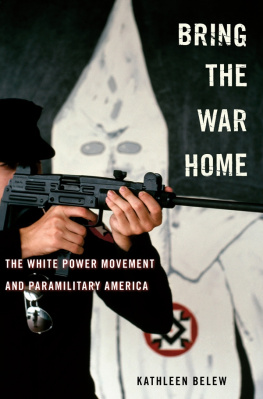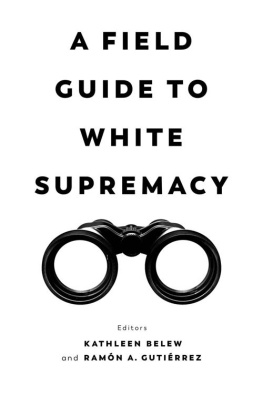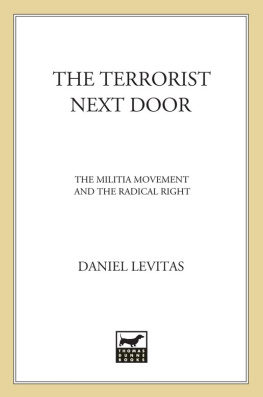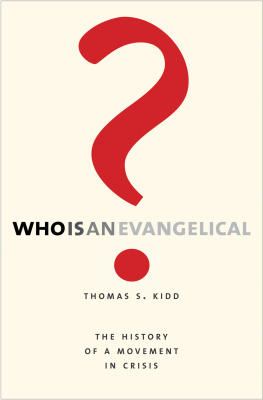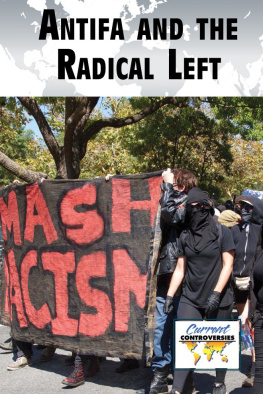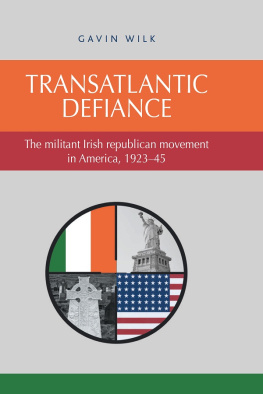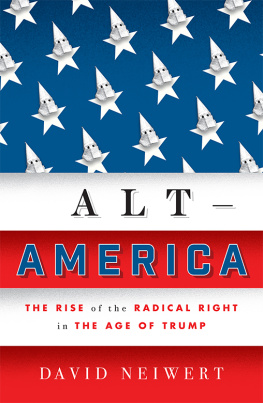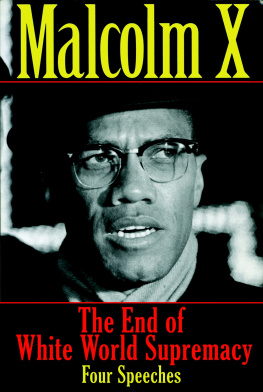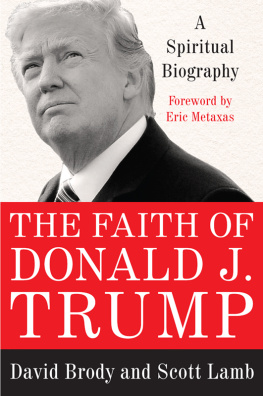A book like this is the product of years of work and the support offered by many, many people. This project was made possible by the generous support of the Andrew W. Mellon Foundation; the Jacob K. Javits, John F. Enders, William A. Macy, and Brand Blanchard Fellowship Programs; the Albert J. Beveridge Grant for Research in the History of the Western Hemisphere from the American Historical Association; the American Studies Program at Yale University; the Rutgers Center for Historical Analysis; the Northwestern University Department of History and Program in American Studies; and the Department of History and the Social Sciences Division at the University of Chicago.
I am indebted to the archivists and librarians who made this research possible, especially Becky Schulte at the Kenneth Spencer Research Library at the University of Kansas; Timothy Engels at the John Hay Library at Brown University; and the special collections librarians at the University of Oregon. Special thanks to Jill Williams at the Greensboro Truth and Reconciliation Commission; Heidi Beirich at the Southern Poverty Law Center; the staff at the Instituto de Historia de Nicaragua y Centroamrica at the Universidad Centroamericana in Managua, Nicaragua; and the Public Records Dissemination Branch of the Federal Bureau of Investigation.
My students at the University of Chicago, Northwestern, and Rutgers shaped this project with brilliant questions and tenacious pursuit; their impact upon this book cannot be overstated. I am especially indebted to my intrepid research assistants and to a phenomenal group of graduate students who engaged with these ideas at the final stages of manuscript revision.
I offer my thanks to Kathleen Blee, Laura Briggs, David Cunningham, Abbey Ferber, Susan Jeffords, David Kieran, Elinor Langer, Elaine Lewinnick, Renee Romano, Malgorzata Rymza-Pawlowska, Sarah Seidman, Brent Smith, Jason Morgan Ward, Kirsten Weld, Laird Wilcox, Leonard Zeskind, and colleagues at the Tepoztln Institute for the Transnational History of the Americas for their guidance, both conceptual and archival, on various iterations of this project.
The method that guides this book has its own history and emerges from a series of vibrant intellectual communities. Special thanks to those who taught me the craft of writing, especially Jim and Katherine Starkey, Kari Tupper, and the Comparative History of Ideas program at the University of Washington. American Studies at Yale offered a dynamic and supportive place to begin this project, and I benefited from the generosity and brilliance of many people beyond my committee, especially Glenda Elizabeth Gilmore, Jonathan Holloway, Gil Joseph, Steve Pitti, and Vicki Shepard. My thanks to the Rutgers Center for Historical Analysis and my friends and colleagues there. At Northwestern University I enjoyed the community of the History Department and the American Studies Program. Special thanks are due to Henry Binford, Kevin Boyle, Deborah Cohen, John Alba Cutler, Daniel Immerwahr, Tessie Liu, Nitasha Sharma, Helen Tilley, Wendy Wall, Ivy Wilson, Keith Woodhouse, and Ji-Yeon Yuh.
For sustaining me with their friendship and good spirits, I thank Julie Allen, Michael Allen, Lee Blum, Amanda Ciafone, Nate Cook, Nicole Gonzales Curtis, Brian Dunn, Erica Dunn, Lane Fenrich, Myrna Garca, Dan Gilbert, Abbey Gilpin, Blake Gilpin, Alison Greene, Cabray Haines, Vanessa Holden, Ben Irvin, Ben Johnson, Susan Kennedy, Charles Keith, Dorothy Lam, Tara Lamkin, Beth Lew-Williams, Jake Lundberg, Rebecca McKenna Lundberg, Kate Masur, Julie Merseth, Ana Minian, Bob Morrissey, Haley Morrissey, Payal Naik, Michelle Nickerson, Melati Olivia, Sarah Osten, Susan Pearson, Dylan Penningroth, Susie Ross, Maggie Dalton Scarborough, Dana Schaffer, Sam Schaffer, Peter Slevin, Timothy Stewart-Winter, Marilyn Susman, and Helen Zoe Veit. Anna Gillan, Meredith Lownes, Hope Shannon, and Meredith Wilkinson made this project possible through their care, love, and joy.
My colleagues at the University of Chicago have astounded me with their insight, incisive critique, and generosity, and I owe a great debt to Mark Bradley, Jane Dailey, Brodwyn Fischer, Michael Geyer, Adam Green, Ramn Gutirrez, Thomas C. Holt, Jonathan Levy, Julie Saville, James Sparrow, Amy Dru Stanley, and to outside readers Nancy MacLean and Jennifer Mittelstadt, for an illuminating manuscript colloquium that stands as the high point of my intellectual life. Indeed, working on this book at the University of Chicago, and in the department of John Hope Franklin, has been a transformative experience. My gratitude to my colleagues, with special thanks to Fredrik Albritton Jonsson, Leora Auslander, Matthew Briones, Rachel Galvin, Ghenwa Hayek, Faith Hillis, James Ketelaar, Emilio Kour, Amy Lippert, Joseph Masco, Emily Osborn, Ken Pomeranz, Moishe Postone, Johanna Ransmeier, Michael Rossi, the U.S. History Working Group, the U.S. Locations Working Group, the Center for the Study of Race, Politics, and Culture, and the Center for the Study of Gender and Sexuality.
I had the rare privilege of working on this project with a handful of extraordinary scholars and friends who understood my best intentions completely. Van Truong, my sincere thanks for your friendship, integrity, and poetry. My abiding love to the Histories of Violence Collective: Balbir Singh, Marin Odle, Jesse Carr, and especially founding members Monica Muoz Martinez, Simeon Man, and Jessie KindigI am in your debt in too many ways to list here. Lisa Lowe talked through these ideas with me at a crucial moment. Junot Daz helped me to see the broad relevancy of these pages and offered ongoing encouragement through revisions. I remain awed by the unending generosity and support of Alicia Schmidt Camacho, Matthew Frye Jacobson, and Robert Burns Stepto, each of whom I see in these pages over and over again. Jean-Christophe Agnew never faltered in his belief that I could write this book. His lights will always be good enough for me. Ann Fabian pulled this unfinished manuscript out of a pile of applications and has been opening doors ever since. Nancy MacLean, Jennifer Mittelstadt, Bethany Moreton, Kim Phillips-Fein, Michael J. Allen, Beth Bailey, Kevin Boyle, Carlo Rotella, and the readers for Harvard University Press read and commented on the full manuscript, sometimes more than once, and always with keen ideas. The wonderful staff at Harvard University Press helped the manuscript across the finish line. Sonya Bonczek, Christina Jodice, and Ralph Jodice brought it out into the wider world. Joyce Seltzer provided incomparable candor and wisdom, and her every suggestion served to elevate the project. The best of this book is the work of all of these people, and the inevitable mistakes are my own.
I have the great luck of a very large and complex family tree, each branch of which has offered me love and support during the many years it took to complete this book. Im not permitted enough words here to list everyone, but I am very grateful to each of you all the same. I thank my aunts, uncles, and cousins for the deep roots that sustain my flights of imagination; my stepfamily and my in-laws for ties thick as blood; my natal family for the gift of radical hope; and my own family for sanctuary. For holding me steady I thank Nathan, Alex, Diana, Ben, Jessica, and Sharon. A few shouldered the greatest burdens of encouragement and faith: Michael reminded me to seek humanity and light. Sarah is my buoy and beacon. My father gave me his love of reading and writing and his tireless encouragement. My mother taught me lessons too numerous to count, not least by carefully tending the empathy that fuels all of my pursuits. This book is for G. and O., with all my best hopes for you and for the world we share.
Forever trapped in the rice paddies of Vietnam.
Louis Beam, 1989

